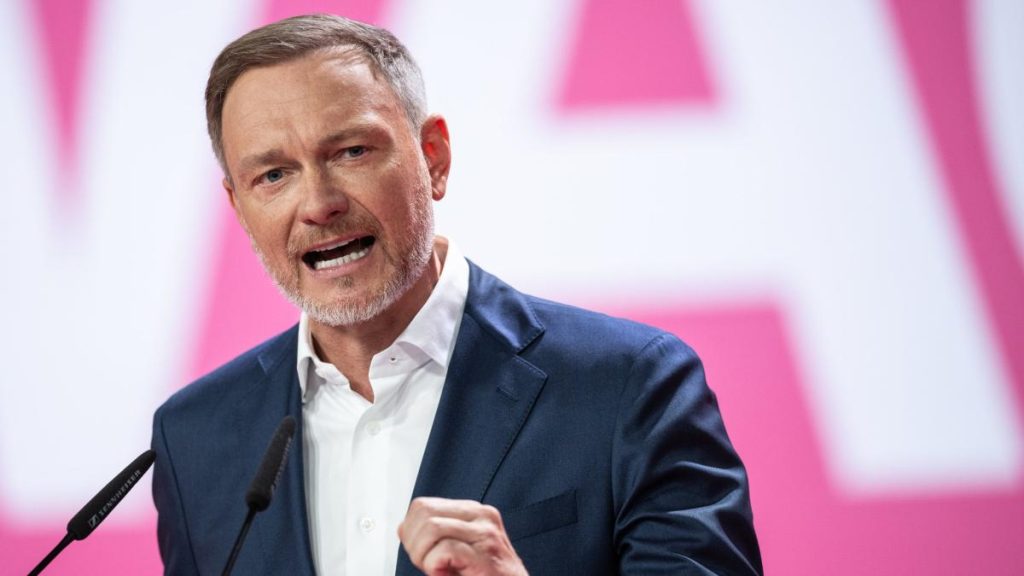During a Federal Party Congress in Berlin, FDP leader Christian Lindner raised doubts about the implementation of a children’s basic income. He criticized the plans put forth by Federal Family Minister Lisa Paus (Greens) as reaching “absurdity.” Lindner proposed redirecting the funds towards improving the quality of child care, rather than creating up to 5,000 new civil servant positions and potentially causing 70,000 people to leave the job market due to lack of incentive to work. Lindner stated that if it is possible to implement the children’s basic income without these negative effects, the FDP would be open to considering it.
Lindner also disagreed with Minister Paus’s assertion that the state has a responsibility to provide support to families with children. He argued that there is a shared responsibility between citizens and the government. The coalition agreement between the Ampel parties included plans for a children’s basic income, which is particularly advocated for by the Greens. Lindner emphasized the need for a shift in economic policy and promoted the FDP’s concept of a “economic turnaround.” He stressed the importance of a realistic approach and the courage to take action in order to improve the country’s competitiveness.
In his speech, Lindner highlighted the reasons why Germany’s economy needs to grow stronger, including strengthening competitiveness, covering increasing costs for defense and security, maintaining the welfare state, and ensuring democracy’s acceptance. He emphasized that growth is not an end in itself, but serves a deeper purpose, especially in the face of global conflicts and crises. Lindner also criticized EU Commission President Ursula von der Leyen for excessive bureaucratic burden on businesses, citing a recent international meeting where global growth weakness was illustrated with a scene from Berlin’s Friedrichstrasse.
The FDP’s stance on the children’s basic income and economic policy has raised speculation about the future of the Ampel coalition with the SPD and Greens. Lindner’s questioning of the children’s basic income and call for a shift in economic strategy have highlighted the party’s commitment to its own positions within the coalition. The FDP leader’s emphasis on practical solutions and a renewed focus on economic growth aims to address challenges facing Germany and position the country as a global leader in competitiveness.
The debate within the FDP reflects broader discussions within the coalition government about social and economic policy priorities. While the Greens advocate for the children’s basic income as a means of addressing inequality, the FDP’s concerns about potential negative consequences emphasize the need for a balanced approach. The party’s call for a pragmatic and realistic economic strategy aligns with its vision for a competitive and resilient Germany in the face of global challenges. Lindner’s speech at the party congress sets the stage for ongoing discussions and negotiations within the coalition.


